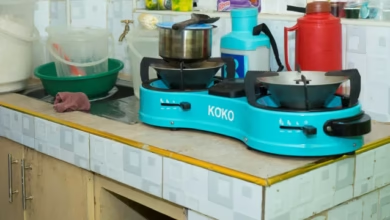
The Azimio Coalition has distilled nine urgent priorities to reduce the cost of living. They are designed to achieve two core objectives – reduce the cost of living, and reset the economy on a rapid growth trajectory. These priorities are programs that involve raising, borrowing and spending money for public purposes, as well as the control of money supply and setting of interest rates.
The most urgent priority is to institute immediate social protection to cushion the most vulnerable (25% of the population) against high cost of living. This requires action to put money directly into their pockets. Azimio calls for an increase in social protection payments to a minimum Ksh.6,000 per household and an increase in minimum wage to Ksh.22,500 per month.
Priority 2 is reducing taxation by repealing the Finance Act 2023. This will bring down the cost of fuel and electricity. A new finance act 2023 should focus on compliance and stimulating production.
To release the resources necessary to undertake priorities one and two above, priority 3 is to cut the budget deficit by reducing expenditure. Sustained budget deficits are the primary cause of current economic imbalances and cost of living crisis. In the past, balanced budgets, including a budget surplus in 2004, were the main foundation of successful economic management by the NARC administration.
Expenditure cuts will release Ksh.886.8 billion over 2023/24 fiscal year, enabling social protection, lower interest rates and public borrowing. The latter will make it possible for the financial sector to lend to businesses. The country must aim for a balanced budget and a return of public finances and borrowing to the purposes intended in Article 201 of the Constitution.
We must re-base and re-prioritize 2023/24 budget. All expenditure items must be justified from a zero base, and avoid duplication of devolved functions. In addition, we must improve governance to eliminate waste, corruption, and graft. Delivery prices must be in line with regional comparators.
Fourth, we must reset macroeconomic policy mix for economic recovery. The 2023/24 budget increases taxation and looks to the CBK as fiscal agent to support government borrowing over lending to grow the real economy. But this tightening of both fiscal and monetary sides is lowering output and sharply crowding out credit to private sector. This wrong mix will contract the economy, accelerate unemployment, and increase poverty.
The better policy mix is tax incentives and cuts, and lower interest rates to stimulate production, and rely on growth to generate more tax in the medium term. That requires a foundation of a balanced budget (priority 3).
Fifth, monetary policy must be re-oriented. The current high interest rates are not working because selling securities squeezes liquidity and real policy motive is to maximize government access to borrowing, not slow down aggregate demand. This drives up poverty and inflation in Kenya via layoffs and business shutdowns.
Short-term fluctuation in inflation are driven by food and fuel prices. Long-term inflation is tracking the fiscal deficit, and has taken on a structural upward trend.
The policy inflation target of 5% -+ 2.5%, is too high, requiring high interest rates in order to avoid negative real interest rates. A long period of high interest rates is causing a sustained erosion of real wages, with the negative redistribution effects against labor in favor of capital. The productive sector is struggling while financial sector reports consistent super profits garnered mainly from lending to government in securities. Therefore, we must lower the price stability target to 2% and the interest rates to 5-6%.
Sixth, we must stimulate production in line with roles of the policy mix on fiscal and monetary sides, by reducing cost of inputs. The immediate and short-term direct interventions should be on fuel and food. They include duty-free imports of food by all with no licensing and subsidized food production.
Medium-long term interventions include switching the food basket, improve access to credit and financial services, promotion of climate-smart agriculture, extension services and investment in food distribution/ware housing infrastructure.
To stimulate industrial production, we must reduce cost of energy and interest rates. In the medium-long term, we must strengthen technical and vocational education and training, promote research and development, and incentivize domestic production of tools and machines.
Seventh, more strategic management of the exchange rate. The shilling has depreciated against US$, but also regional currencies. Given a positive surplus (Ksh.130 billion) in our regional trade, is a weak shilling not desirable. Further, a weak shilling hurts overall, because food [wheat, rice, maize, edible oils] and fuel are relatively price-inelastic. Even when prices increase, we still import them. Our trade deficit averages US$ 5 billion.
A single regional currency would favor Kenya via a system of net settlements. We should hasten the start date of the East Africa Monetary Union to March 1, 2024. This is a fortuitous opportunity. If we propel economic recovery and output now, it will drive regional exports and support import bills in the medium term.
Eighth, we need a targeted economic stimulus to leverage all the assets that have been created in the last fifteen years. This means a process and sequence of maximizing the socio-economic benefits from public investments Kenya has already undertaken. These include the SGR to Suswa, the Ethiopia hydroelectricity interconnector, and the Lapsset corridor.
Ninth, immediate action towards debt stabilization. Debt default, if it happens, will greatly impair any recovery. Early decisions are necessary so that the restructuring is voluntary versus involuntary. We can save ourselves money and strife, by taking decisions in the pre-default phase rather than acting post default. In pre-default debt restructuring, a country starts the process before missing a programmed payment.
On the prioritization and sequencing, the decision to reduce and re-prioritize the budget must come first. This creates room for a reduction in both taxation and borrowing. It also releases resources for urgent social protection and ensures that CBK re-directs the reduction of domestic borrowing to the private sector to stimulate production.
Ndiritu Muriithi, Dr. Caroline Karugu, Dr. Mbui Wagacha, Hon. John Mbadi and Saitoti Torome are members of the Azimio Economic Council.






I don’t think the title of your article matches the content lol. Just kidding, mainly because I had some doubts after reading the article.
Your point of view caught my eye and was very interesting. Thanks. I have a question for you. https://www.binance.com/en/register?ref=JHQQKNKN
I don’t think the title of your article matches the content lol. Just kidding, mainly because I had some doubts after reading the article.